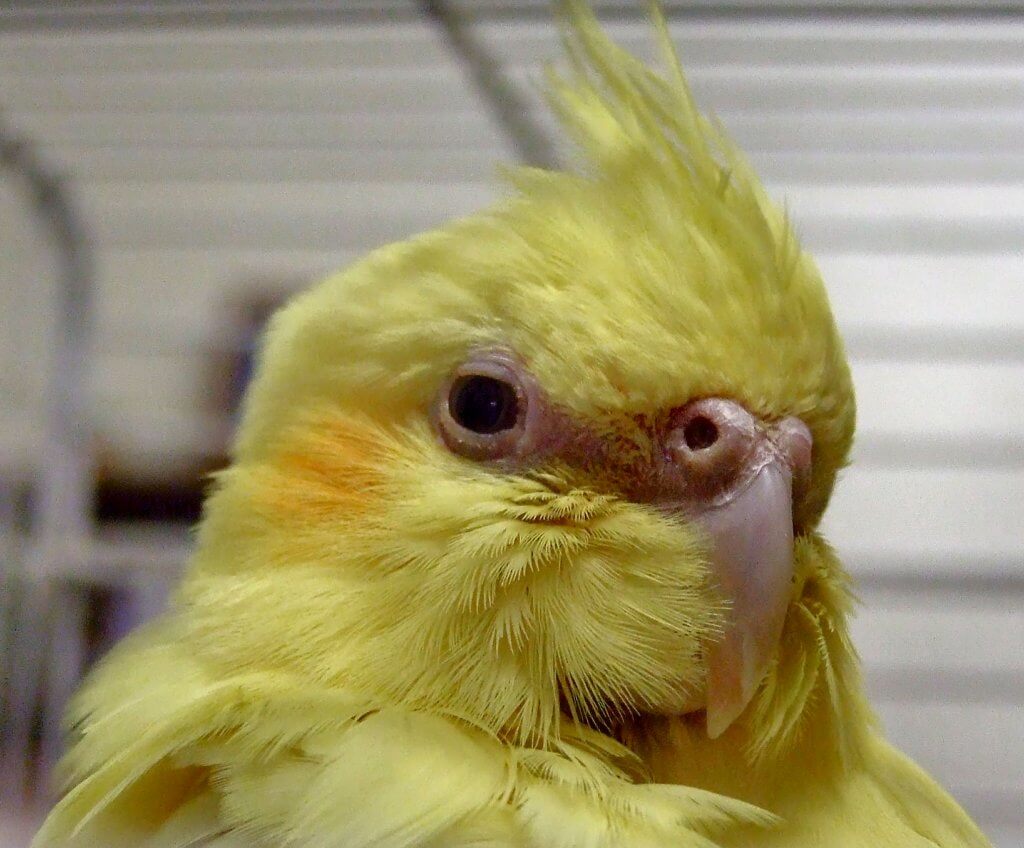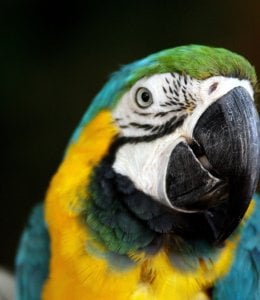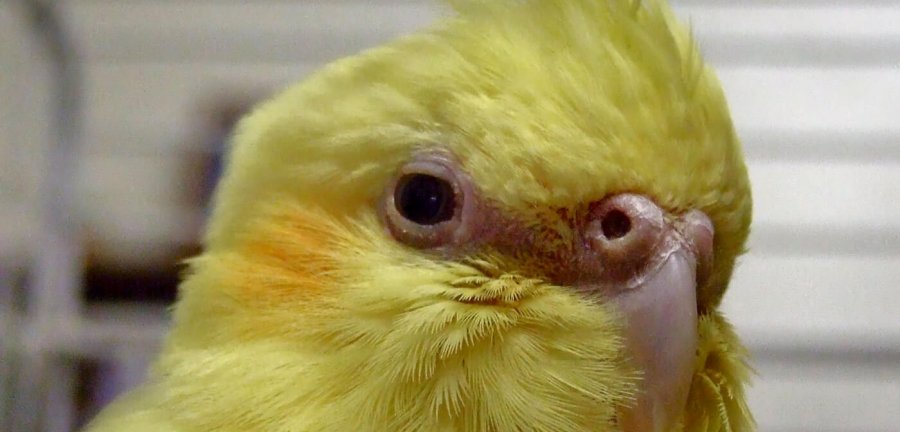The very qualities that we find most admirable and fascinating about birds—their brilliant colors, ability to communicate, intelligence, playfulness, and loyalty—tempt many people to keep them as “pets.” But when they are kept constantly caged or are improperly cared for, captive birds can slowly go mad from loneliness and depression and may become aggressive and self-destructive. Please, never buy a bird from a pet store or breeder. If you already share your home with a bird, read Deborah Broocker’s article below about easy ways to provide your feathered friend with a richer and more active life.
You may think this article is for the birds—and I hope you do. Just like other species who live with us, birds have very curious natures and require a stimulating environment in order to be happy and content. Bird species often live in flocks in nature, and those that don’t still have strong courtship and mating behavior. They’re not solitary beings, as a rule. Like humans, they depend on social connections for a sense of well-being. When considering enclosures, keep your bird companions in an area where there is activity during the daylight hours but which offers a quiet and secure environment for sleeping and resting. Make sure that they can see and hear you as much as possible during the day.
Use the mantra “location, location, location” to designate an ideal spot for their enclosure that provides a bird’s eye view of the world. My small parrot, Oscar, looks out a large second-story window where he receives lots of indirect light and enjoys observing the hustle and bustle outside. He is the neighborhood “peeper” who hears and watches wild birds when he’s not spying on humans. Keep in mind that if your neighbor’s cat regularly prowls outside your birds’ window, this may scare them.

rgbstock.com/TACLUDA
In addition to providing access to peer out a window, there are several other simple ways to help ensure that your birds have the stimulation they need. Provide sound by playing music, tuning into talk radio, or turning on the television to occupy their auditory senses. Appropriate, bird-friendly sounds can mimic natural noises. Play soft instrumentals or low background voices. Birds have a keen ability to hear, so a volume that seems normal to you might be jarring to them. Provide gentle acoustic sounds. Talk to them. Learn “bird speak” and experiment with whistles, clucks, and chirps, noting which noises get a curious head tilt and which ones soothe your startled friends. Many birds recognize and respond to their name, so include it in your conversations with them. Thankfully, birds don’t seem to be bothered by repetition the way humans are, so keep singing that same old song to them. Many like to memorize tunes, so don’t be surprised when they sing one back to you.
In addition to feeding your birds a healthy pellet diet, provide them with a variety of fruits and vegetables. But learn which foods are poisonous to birds, and throw out all your nonstick cookware, as the fumes are toxic to them. Oscar joins us for three meals most days. He eats healthy and interesting foods that are handed to him while meals are being prepared. Birds typically occupy themselves with procuring food as a large part of their daily activities. Larger parrots enjoy complex food puzzles. Keep it fun by introducing new flavors and textures and offering birds a challenge in order to get them to “work” for their treats.

rgbstock.com/MEITENG
Birds are often thrilled to sit on your hand or shoulder after they’ve been properly introduced to being near humans. As much as your birds will comfortably tolerate it, pet and hold them. If your companions preen or tuck their heads under a wing while perched on your hand or shoulder, that’s a sure sign of trust. This is a great time to scratch their heads to help with molting. Ideally, your companions should have one-on-one time with you outside their enclosure on a daily basis. Birds should have cages with play tops, and the cages should remain open all day unless it’s not safe, such as when a dog is visiting. It’s important that birds have the freedom to come and go as they please and are able to decide how much time they spend in the cage. It should only be closed at night for safety, as birds can easily get startled and fly into a wall or other objects. They are prey animals, and this will help them feel safe and secure at night.
Not only are these recommendations inexpensive and easy to implement, they’ll also help make your birds much happier!
PETA offers more bird-care tips here.
Deborah Broocker is a retired college librarian who has enjoyed a lifelong fascination with birds. She has a degree in biology and has written articles about birds for mainstream magazines.





